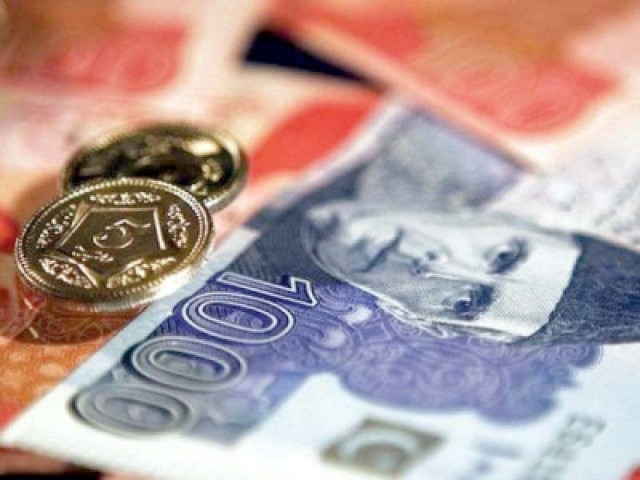No new tax imposed
Province, however, changed some tax ratios, particularly targeting luxury houses

The government of Punjab has announced that it is not imposing any new tax in the provincial budget for fiscal year 2022-23, presented before the house on Wednesday.
However, the provincial government has changed some taxation ratios through the proposed Finance Bill. An upward revision in tax ratios has mainly been made for luxury houses.
The province has continued the reduced sales tax on services for over 30 sectors for the upcoming year. The facility was given by the previous government after the novel coronavirus hit the country’s economy.
Overall, the province has projected tax collection of Rs337.025 billion in the next fiscal year against the expected revenues of Rs276.7 billion in the outgoing year.
Its star tax collection agency is the Punjab Revenue Authority (PRA), which is expected to generate Rs204.47 billion. The provincial Board of Revenue is expected to collect Rs75.23 billion, Excise and Narcotics Control Rs52.39 billion, transport department Rs1.44 billion and energy department Rs0.22 billion.
The provincial non-tax revenues for 2022-23 are estimated at Rs163.5 billion against the expected Rs144.34 billion for the ongoing fiscal year.
Nevertheless, Punjab’s biggest source of revenue will remain the amount which will come from the federal government. Under the federal divisible pool, the province is projected to get Rs2,020.74 billion in FY23 against Rs1,761.17 billion in FY22.
In the Finance Bill, the Punjab government has continued the relaxation of 95% for the registration and token tax on electric vehicles.
Simultaneously, it has increased the stamp duty from 1% to 2% on urban immoveable properties, and revised upwards the one-time tax on the construction of luxury houses of two kanals and above.
The steps taken by the government will create a fiscal space of over Rs20 billion.
According to the proposed bill, the government has increased the rate of tax on residential houses of two kanals and above after eight years. Last time, it was revised in 2014.
The new proposed tax rate will be applicable to the completion of construction of luxury houses from July 1, 2022 onwards. However, the old rates would be applied to the luxury houses submitted for completion till June 30, 2022.
According to the new proposed rates, the tax rate for the Lahore district has been increased to Rs300,000 per kanal to a maximum of Rs2.5 million from Rs200,000 per kanal to a maximum of Rs2 million on two-kanal to eight-kanal luxury houses.
For eight kanals and above, the new tax rate is Rs400,000 per kanal to a maximum of Rs4 million from Rs300,000 per kanal to a maximum of Rs3.6 million.
The tax rate for the rating areas of divisional district headquarters and all the cantonments in the divisional district headquarters has gone up to Rs200,000/kanal to a maximum of Rs1.8 million from Rs150,000/kanal to a maximum of Rs1.5 million for two-kanal houses.
For eight-kanal houses, the new tax rates are Rs300,000/kanal to a maximum of Rs3.5 million from Rs250,000/kanal to Rs3 million maximum.
For the remaining rating areas and cantonments, the new proposed tax rates for two kanals are Rs125,000/kanal to Rs1.5 million maximum, from Rs100,000/kanal to a maximum of Rs1 million.
For eight kanals and above, the proposed new tax rates are Rs225,000/kanal to a maximum of Rs2.5 million from Rs200,000/kanal to Rs2 million maximum. The government is anticipating around Rs60 million revenue collection from the measure.
Furthemore, the exemptions given by the government in the past years from the payment of taxes through the e-payment system will continue in the tax year 2022-23. The discount equal to 5% of the tax being paid shall be allowed on the payment of tax through the e-payment system.
The tax paid on a yearly basis or half-yearly basis as the assessee may choose on such later date as the government may, by notification, determine; and, for financial year 2022-23, the tax shall be collected in first quarter with 5% rebate in the amount of annual tax, and in second quarter, the amount of annual tax without any rebate, whereas in third and fourth quarters, the amount of annual tax with 1% surcharge per month on the gross payable tax.
Similarly, on motor vehicle tax (token tax), a 5% discount is offered on the tax paid through e-payment. The token tax in first quarter of 2022-23 will be collected with 10% rebate in the amount of annual tax.
In the second quarter, the amount of annual tax will be paid without any rebate, whereas in third and fourth quarters, the amount of annual tax with such penalty as may be determined under Section 9.
Published in The Express Tribune, June 16th, 2022.
Like Business on Facebook, follow @TribuneBiz on Twitter to stay informed and join in the conversation.



















COMMENTS
Comments are moderated and generally will be posted if they are on-topic and not abusive.
For more information, please see our Comments FAQ